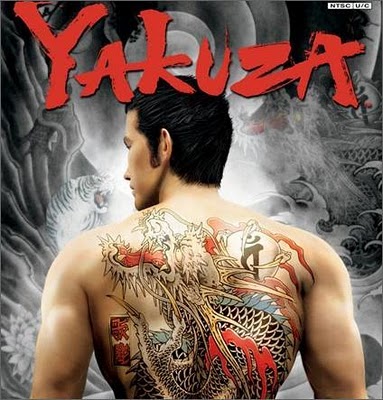Yakuza (also known as gokudo), are members of traditional organized crime syndicates in Japan. The Japanese police, and media by request of the police,
call them boryokudan ("violence group"), while the yakuza call
themselves "ninkyo dantai" ("chivalrous organizations"). The yakuza are
notorious for their strict codes
of conduct and very organized nature. They are very prevalent in the
Japanese media and operate internationally with an estimated 80,900
members in 2009, the last year for which an estimate is available.
Divisions of origin
Despite uncertainty about the single origin of yakuza organizations, most modern yakuza derive from two classifications which emerged in the mid-Edo Period (1603–1868): tekiya, those who primarily peddled illicit, stolen or shoddy goods; and bakuto, those who were involved in or participated in gambling.
Tekiya (peddlers) were considered one of the lowest social groups in Edo. As they began to form organizations of their own, they took over some administrative duties relating to commerce, such as stall allocation and protection of their commercial activities. During Shinto festivals, these peddlers opened stalls and some members were hired to act as security. Each peddler paid rent in exchange for a stall assignment and protection during the fair.
Throughout history, especially since the modern era, Kyushu island has been the largest source of yakuza members, including many renowned bosses in the Yamaguchi-gumi. Isokichi Yoshida (1867–1936) was from the Kitakyushu area and considered the first renowned modern yakuza. Recently Shinobu Tsukasa and Kunio Inoue, the bosses of the two most powerful clans in the Yamaguchi-gumi, are from Kyushu. Fukuoka, the northernmost part of the island, has the largest number of designated syndicates among all of the prefectures.
The Edo government eventually formally recognized such tekiya organizations and granted the oyabun (leaders) of tekiya a surname as well as permission to carry a sword — the wakizashi, or short samurai sword (the right to carry the katana, or full-sized samurai swords, remained the exclusive right of the nobility and samurai castes). This was a major step forward for the traders, as formerly only samurai and noblemen were allowed to carry swords.
The Yakuza, the Japanese Mafia -- The Crime Library — Origins and Traditions
Divisions of origin
Despite uncertainty about the single origin of yakuza organizations, most modern yakuza derive from two classifications which emerged in the mid-Edo Period (1603–1868): tekiya, those who primarily peddled illicit, stolen or shoddy goods; and bakuto, those who were involved in or participated in gambling.
Tekiya (peddlers) were considered one of the lowest social groups in Edo. As they began to form organizations of their own, they took over some administrative duties relating to commerce, such as stall allocation and protection of their commercial activities. During Shinto festivals, these peddlers opened stalls and some members were hired to act as security. Each peddler paid rent in exchange for a stall assignment and protection during the fair.
Throughout history, especially since the modern era, Kyushu island has been the largest source of yakuza members, including many renowned bosses in the Yamaguchi-gumi. Isokichi Yoshida (1867–1936) was from the Kitakyushu area and considered the first renowned modern yakuza. Recently Shinobu Tsukasa and Kunio Inoue, the bosses of the two most powerful clans in the Yamaguchi-gumi, are from Kyushu. Fukuoka, the northernmost part of the island, has the largest number of designated syndicates among all of the prefectures.
The Edo government eventually formally recognized such tekiya organizations and granted the oyabun (leaders) of tekiya a surname as well as permission to carry a sword — the wakizashi, or short samurai sword (the right to carry the katana, or full-sized samurai swords, remained the exclusive right of the nobility and samurai castes). This was a major step forward for the traders, as formerly only samurai and noblemen were allowed to carry swords.
The Yakuza, the Japanese Mafia -- The Crime Library — Origins and Traditions


No comments:
Post a Comment